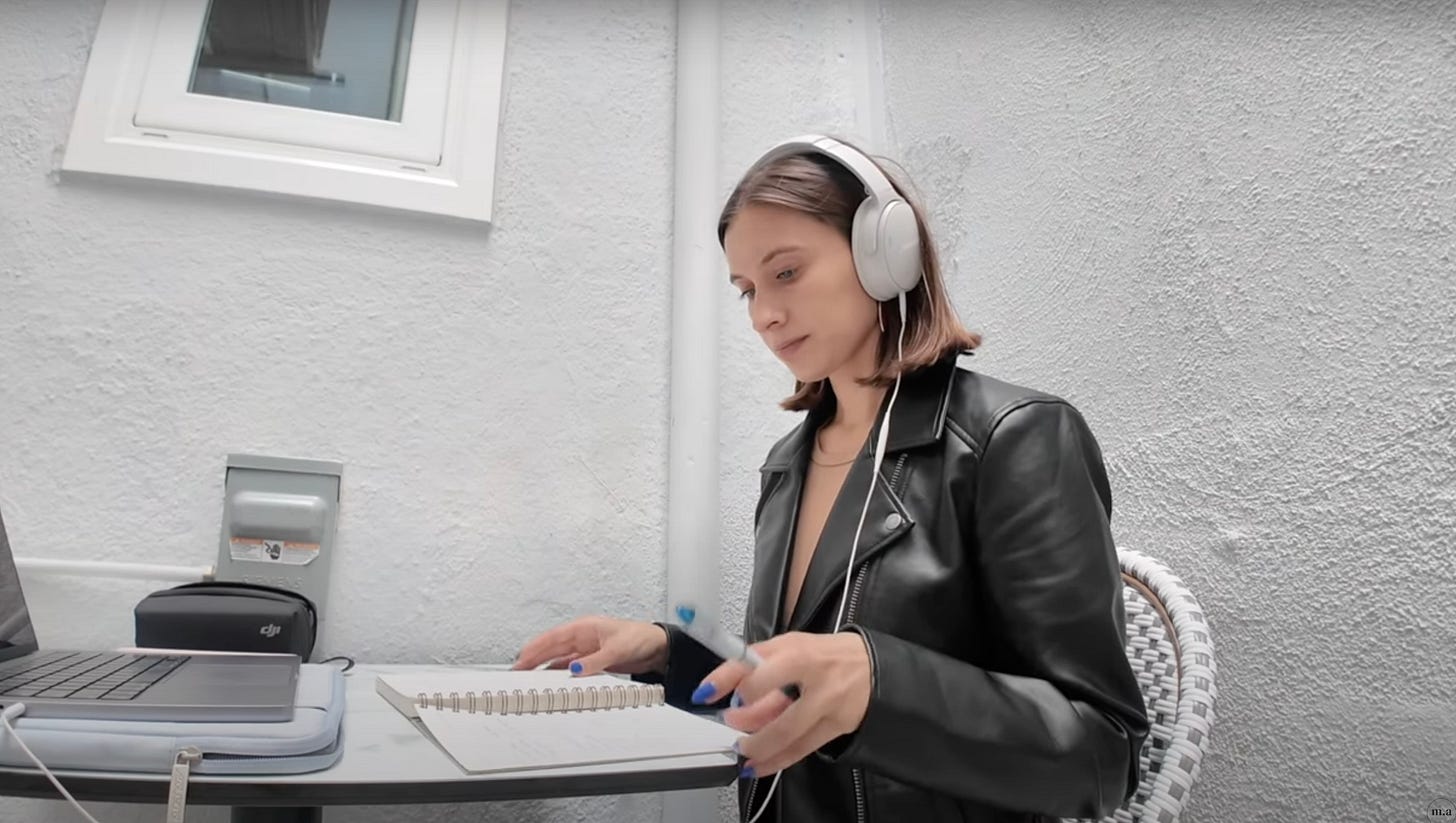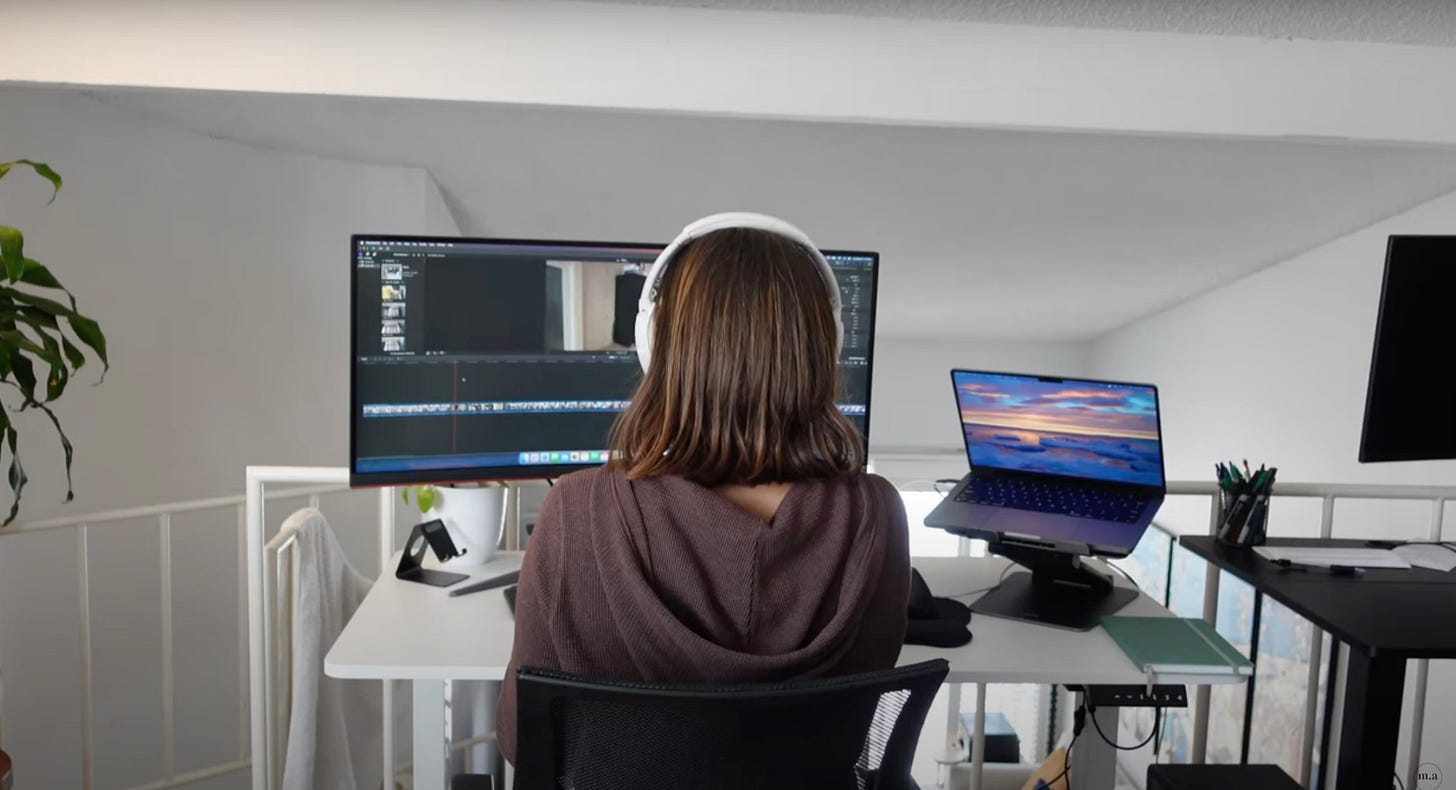No More Multitasking in 2025...
How Deep Work Can Help You Stop Procrastinating and Actually Get Things Done
Achieving “Deep Work” can sound ominous—like a superhuman skill in which the mind unlocks its fullest potential by utilizing its mental facilities. Deep work is actually a deliberate practice in which you enter a state of peak concentration that increases your ability to overcome challenges and efficiently create quality work. Once you enter your practice, the flow state is the ability to remain in this state and the productive outcomes of this discipline. The upper limit for deep work per day is approximately four hours. Essentially, we’re aiming to get more done in a smaller period of time. Who wouldn’t want to get all their tasks of a 9-5 done by their lunch break?
For me, it can be difficult to encourage my mind to partake in long-term focus, especially in content creation where creators are rewarded for making short-term content that instantly releases dopamine in the brain. The algorithms within TikTok/Reels/Shorts can be highly addicting, establishing a dopamine loop when the dopamine from social media reinforces the brain’s need to seek that reward again. This is also the reason why I prefer creating content for YouTube since I feel like my longer video style helps me create a better relationship with all of you. When I do find myself going down the rabbit hole of social media, I’ll force myself to either go on a walk, take a shower, workout, or do something that reengages me in the present.
Apart from practicing better focus habits, some tricks I do to set myself up for deep work include leaving my phone in another room, designating a room in my apartment for the sole purpose of working, and setting aside the same portion of the day for concentrated work. If I decide to put away my phone for a handful of hours, I make sure to let my partner/friends/family know so that there's no miscommunication. I’ll also make sure my phone is silenced except for emergency calls, but I find that the chances of an unaccounted emergency during the few hours of deep work is slim.
One of my favorite podcasts is Huberman Labs where the neuroscientist, Dr. Andrew Huberman, invites other scientists and researchers to explain how we can achieve our most optimum health and capabilities through science-based facts. In his episode with Dr. Cal Newport, How to Enhance Focus and Improve Productivity, they label five tips for deep work.
The first is using dynamic modes throughout the day. Your mind can become more flexible and adaptive if you use walking or other movements during focused ideation, while using stillness for more intense focus sessions to maximize cognitive activity. The second tip by Cal Newport is understanding that deep work is the result of discipline and must be practiced in order to achieve a flow state. Thirdly, working with or surrounded by peers can help maintain focus due to the social pressure and the encouragement for active participation. The fourth tip is setting work bouts which is a short period of intense work towards a specified activity. You can do this by starting with 90-minute bouts at the same time everyday, then steadily increasing this bout based on performance and comfortability. The last tip is to modify your work environment. Each deep work session should start at the same time, which may require meetings to be moved or routines to change.
The practice of deep work has drastically improved my productivity and success within the media industry. I firmly believe that incorporating even a few of these tips can help increase your results in the workforce, whether that’s to become a better employee or help you in your entrepreneurial career.



